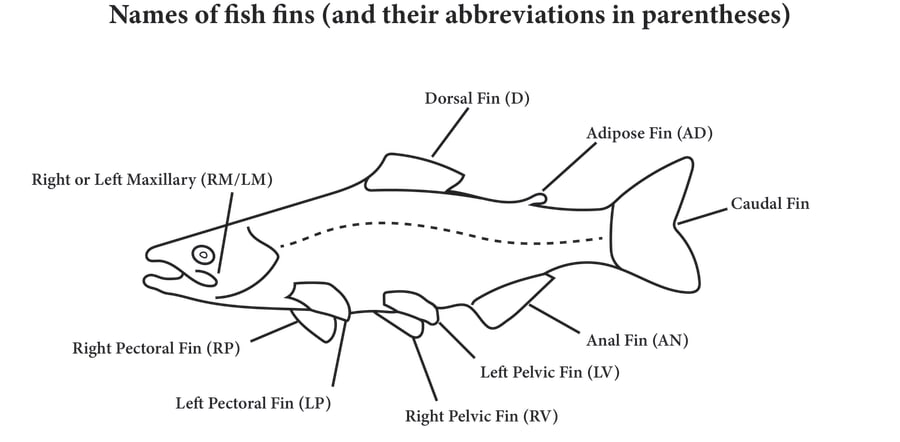Do you fish in Lake Superior? The Michigan Department of Natural Resources is asking anglers to report marked splake.
Splake is a hybrid cross between lake trout and brook trout. They’ve been stocked in Lake Superior most years since 1971, with annual stocking since 1990. The DNR stocks them in Munising, Copper Harbor and Keweenaw Bay.
The DNR wants anglers to report when they catch a marked splake so they can monitor the percentage of stocked fish caught by anglers, the home range of place and harvest metrics.
“Preliminary study results indicate that most splake remain in close proximity to their respective stocking locations,” said George Madison, a Michigan Department of Natural Resources fisheries biologist for the Western Lake Superior Management Unit. “Splake are known to prefer shallow water habitats, meaning these fish are accessible with small boats or shore casting during the open-water periods on Lake Superior. Splake are also readily available through the ice during winter fishing months.”
How to ID and report a marked splake
Fisheries managers have learned that ID’ing the correct fin clip on a splake can be hard to do while fishing.
When you catch a splake, check it for missing fins or a jawbone clip. Those things indicate that it has been marked. Some clipped fins can be misshapen or missing or appear abnormal.
You can click here to report marked fish. The DNR wants information on the species, length, weight, sex, and date and location caught. Or you can contact a local DNR office. Anglers can also report marked splake to DNR creel staff at various ports along the Lake Superior shoreline.
Splake can be hard to identify because they can look like either trout or brook trout. Creel staff can help correctly ID the fish. If you want to learn more about fish marking in Michigan, you can click here.

“If you’re fishing for splake on Lake Superior this fall, we encourage you to talk with DNR creel staff, who are scheduled through the end of October,” said Madison. “It takes just a few minutes to share information about your fishing trip, but those details mean better data and greater understanding about splake abundance and behavior.”
Love fishing? Click here for more coverage. Visit Michigan.gov/Fishing for more information from the state.



